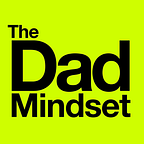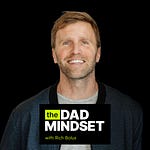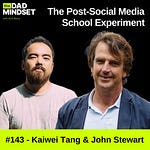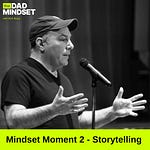If you'd like to get in touch with Elisa, you can find her on LinkedIn here or visit her website here.
Out & About with Kids is a multi-platform publisher specialising in family travel. Their quarterly magazine, timed to coincide with the school holidays, features stories about Australian and overseas holiday destinations, travel news, information about upcoming events, hotel reviews, advice, interviews with industry experts and celebrities about their favourite holiday experiences, and the latest travel products families need to know about. In addition, the Out & About with Kids website also showcases the hottest deals, competitions and videos. To find out more, visit Out & About with Kids.
Things we cover in this episode:
Finding happy safe places for kids was Elisa’s motivation for career.
At 24 she became Coordinator of services for child sexual assault at Dubbo.
Family and Community Services.
Layla Samuels was her mentor/boss and would give.
She discovered she was not suited to working in child safety and sexual abuse as she got angry at every case.
Went into a career in disabilities.
The confrontation of the reality of so many families being dysfunctional and the children suffer the most.
Communities most impacted by drinking were generally hubs of child sexual abuse.
You look after nurture and protect the child.
Becoming child-centric was about protecting the child.
The timing of the abuse and the impact it had on development.
Sense of self-esteem and self.
Cannot understand the mindset of an adult perpetrator.
Often it’s because the perpetrator’s had been sexually abused themselves.
Whatever you experienced as a child and unless you work on that and create a new path for yourself and finding what your triggers are through work on your self. Unless you work on that you can bring it back.
It could be as high as 80% of perpetrators that are prosecuted or found out have been sexually abused as children.
Also a significant proportion of people incarcerated.
It doesn’t mean they’ve gone on to be perpetrators but it does mean that there’s a lifelong impact on your capacity to manage the world as a trusting place and you do whatever you can to get through.
There needs to be more conversation about it.
Education of kids to be able to talk about it.
To be heard.
That is always one of the issues.
Grace Taymen, if you’re not heard or believed, and don’t have a safe place to tell and then you’re not protected.
If you’re protected but the perpetrator is still out there having a voice it is still devastating.
The damage is lifelong.
If the perpetrator is a family member, a father a brother an uncle a cousin, they are the adults that children respect and trust and develop their sense of safety and self.
If that person that you love and trust and that you’re supposed to rely on damages and hurts and abuses you, it leaves a lasting ricochet on your capacity to trust the world and your ability to move forward feeling confident and safe.
The biggest issue is that people go into every circumstance waiting to be hurt, damaged and abused.
Complex childhood trauma. Sexual abuse being a significant part of that.
It doesn’t go away, it just gets managed.
The Body Keeps the Score book.
Diagnostic Statistics Manual.
Pia Mellody came up with the therapeutic concept of complex childhood trauma and the theory of developmental immaturity.
Whenever your trauma impacted you as a child you were so busy protecting yourself (freezing, running, defying, becoming over compliant or hiding in your room) that you didn’t have the opportunity for normal developmental milestones in a safe and loving environment and you missed things. At the time you might lose the capacity to do things.
I’m strong, I’m loved, I’m fine.
Take a deep breath and come back to myself.
Breath it out to move into a different measure.
IFS - Richard C Schwartz
COVID was a spring point for many people who had issues of trauma and PTSD and complex issues that they might never have dealt with because their lives were too busy before.
When that was all gone, you just sit with yourself and the shit comes to the top and all those things that you might have been suppressing, the fact that we were helpless, there was nothing we could do to change this and it sent many people into dark places and the ongoing mental health problems.
Elisa’s next role was with disability services in Manly.
Supporting families that had a person with a disability living at home with them.
To supply them with whatever they needed to get through.
Disability is such an enormous range.
Studied a diploma of hypnotherapy.
Light post hypnotic suggestion.
Became the expert with young men living at home with their ageing parents.
They are defiant and strong men.
There seemed no barriers with people with intellectual disabilities.
Elisa ran groups for siblings of people with disabilities
Body protection and puberty education with people with disabilities.
Naming private parts.
Collaroy Hospital.
Permanent residential facility for people with disabilities
Looked after forever and you could chose to visit—or not.
Institutionalised.
Started the first year of the Richmond Report which advised closing these places down.
Then they bought residential houses and moved people into the community where they became families.
There was a lot of fear and judgement or acceptance and support from the neighbours.
Endless battle for resources and support.
Department of Community Services Head Office of Adoption in Parramatta.
Special Placements Unit placing children with special needs with adoptive foster care.
It wasn’t easy work but it was rewarding.
With the natural parents of the children with special needs there was hardly ever agreement between the mother and the father.
Father told the community that his child had died, they even had a funeral (when it was still alive but just had Down’s Syndrome).
The mom would sneak out and meet in secret with Elisa just to find out how her child were.
How growing up in a safe and loving home is the foundation of security and self-esteem.
If you don’t have that attachment, security and love when you’re a child and you’re dealing with it, it will impact your life.
The rest of us that have had complex childhood trauma then you’ve got a lifelong adjustment ahead of you.
With her own children didn’t have any maternal role modelling.
Long, long days of overwhelm after experiencing post-natal depression.
Family trip to Lapland.
Northern Lights
Harriniva Resorts.
Partying the Finnish way.













